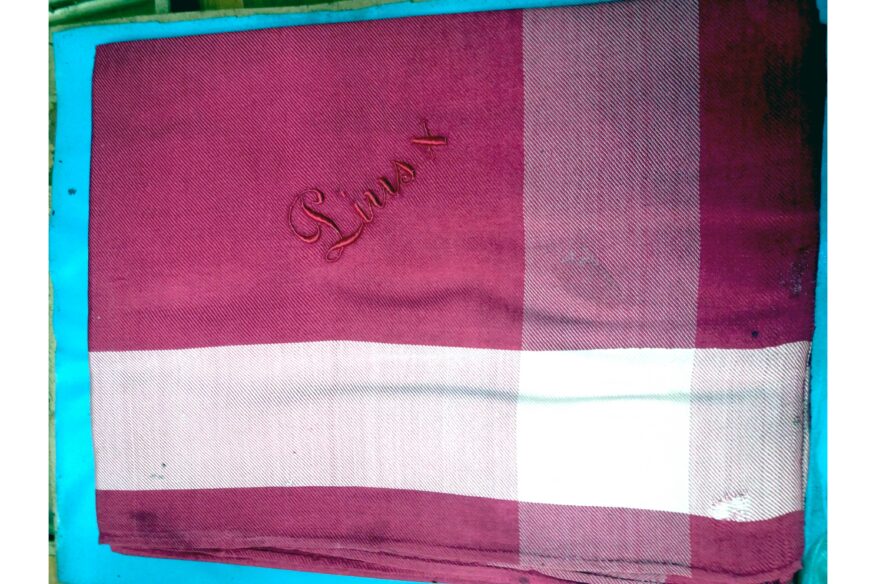The Pope’s handkerchief

Fr. Carlo Massaruti and the gift of Pope Pius X
What is a red silk handkerchief with the name of a pontiff embroidered on it doing in our archives? T To find out, we have to go back more than a century.
In early 20th century Rome, among the military stationed in the city, the name of Fr. Carlo Massaruti was well known, especially among the young Carabinieri. Fr. Carlo, who was born in the Urbe on 21 October 1878 and joined the Company in 1898, had already started to take care of the spiritual care of the military during his magisterium.
Over the years, the father founded a true work, which would later take its own name – ‘Opera Massaruti’ – with the desire to offer a physical and spiritual space for Carabinieri and their families to gather in prayer in the evenings, meet, and attend catechism.
Over the years, the young Jesuit managed to find premises for the apostolate among the military, which he adapted also thanks to funds received from the Pope, Pius X.
According to his brother Joseph, also a Jesuit, Fr Charles, during a private audience with the Pontiff, asked to receive a gift from the Pope in memory of that meeting. The Pope was surprised by this unexpected request: ‘What do you want? I have nothing’.
He then thought of a red handkerchief embroidered in silk with his name “Pius X” and handed it to him: “Here, I have a handkerchief, do you want it?” Fr. Charles accepted the gift and kept it as a precious memento of the pontiff, munificent financer of the work.

That handkerchief, preserved intact after more than a century, is in our historical archive today, bearing witness to the bond between the Jesuit and the Pontiff.
P. Carlo continued to assist the Carabinieri and their families, celebrating Mass every evening in the headquarters of the work for twenty-five years. Particularly ill, he died while still young in Galloro, then a novitiate and residence of the Roman Province of the Society of Jesus, in 1930.
The historical archive preserves the personal file relating to Fr Charles’ journey in the Company, but also the notes and diaries of his brother Fr Joseph, in which Fr Charles’ life and memory is very much present.
The Massaruti work did not die with Fr Charles, but continued its mission, also adapting it to the new needs of the times. In the course of the 20th century, in fact, it turned its attention first to those who had not managed to finish their studies, guaranteeing evening courses to obtain a diploma, then to immigrants with Italian language courses.
Entrusted to Fr. Brancadoro for many years, the Opera Massaruti is no longer active but part of its aims have been inherited by Centro Astalli (JRS Italy).
The life of Fr. Carlo Massaruti is recalled by his brother Giuseppe in a 1933 publication ‘Fr. Carlo Massaruti of the Society of Jesus. Apostle of the Military. Memoirs of his brother Fr. Giuseppe, Isola del Liri, 1933’, in which his dialogue with Pius X is reported.
Maria Macchi











